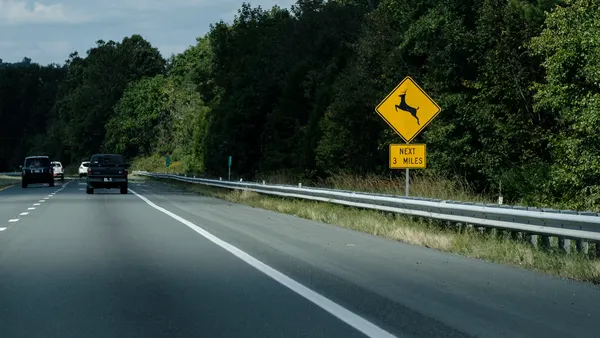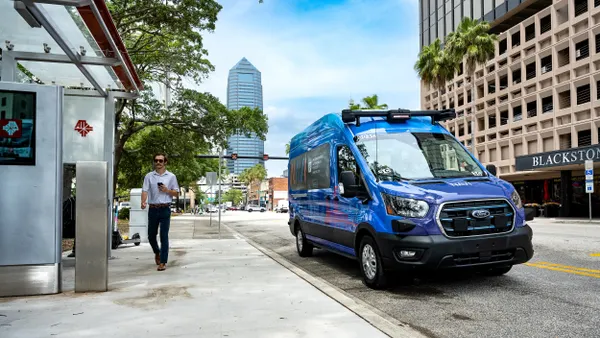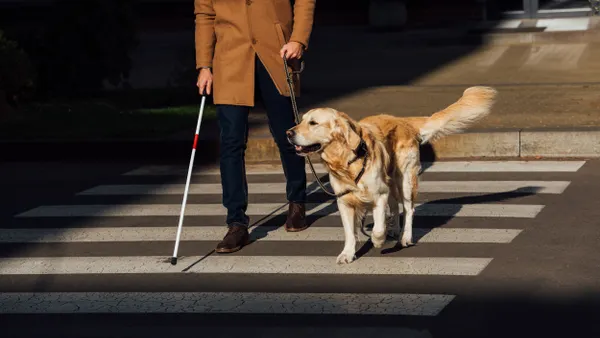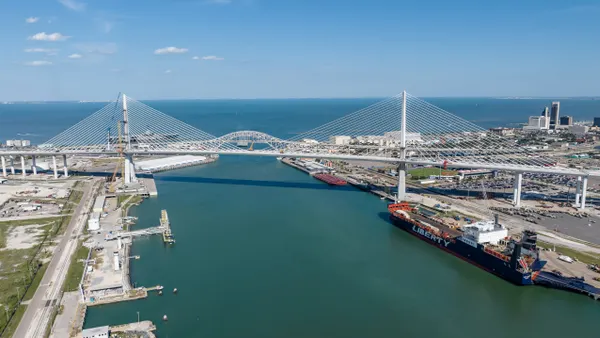Dive Brief:
- Micromobility firm Bird quietly phased out a program to help cities pay for protected bike lanes and improve infrastructure earlier this year over concerns about how the money was being spent, the company’s director of government partnerships Maurice Henderson confirmed Tuesday at the Colorado Smart Cities Symposium in Denver.
- Henderson said during a panel discussion that the company found "most cities were taking the dollars they were getting out of the program and plugging budget holes as opposed to plugging potholes." The program had been established to set aside $1 per scooter per day to pay for bike lane maintenance; Streetsblog reported it had been phased out in January.
- Henderson said Bird is still engaged with cities and other partners to find ways to improve infrastructure, including by sharing data and creating safety policies.
Dive Insight:
With an estimated 84 million trips on shared bikes and scooters in 2018, micromobility has clearly gone from a novelty to commonplace in cities. That’s forced new conversations about how to safely regulate and integrate new modes of transportation into the existing mobility network without stunting growth. A large part of the conversation has been around safety, including questions about whether scooters belong on streets or bike lanes and where they can be safely parked to keep sidewalks clear.
Speaking at the same panel on Tuesday, David Kemp, senior transportation planner for the city of Boulder, CO, said conversations should include addressing some of the "rough terrain" that scooters may be forced to contend with despite the safety risks. Damage on roads can be even more unsafe to scooter riders than bicyclists because the tires are smaller and riders may have less control.
"I'd like to see how these companies can help our cities with some infrastructure improvements," Kemp said. "If we’re going to designate certain streets where these scooters can be ridden, let’s see what these companies can do to help us fix up our infrastructure so you can ride them safely."
Despite operators' friction with cities at the dawn of the scooter craze, due to how many scooters essentially showed up in cities overnight, Bird has tried to mend relationships. The company’s Save Our Sidewalks (SOS) pledge sought to create best practices, and the bike lane funding program was a much-hyped strategy to work with governments to improve safety. It was announced at the same time as the creation of a Global Safety Advisory Board.
In an interview with Smart Cities Dive after the panel, Henderson said that some cities had used the funding to cover bike lanes, but that others had simply put it into the public works budget without earmarking it for scooter-related infrastructure.
Streetsblog initially reported that the bike lane program had ended at the beginning of the year, noting that Baltimore and Kansas City, MO had accepted the funds, while others were unable to. Meg Young, shared mobility coordinator at the Baltimore City Department of Transportation, said that Baltimore did collect a $1/day/vehicle fee from Bird, however the fees were charged to all operators involved in the city's scooter pilot and were not associated with the SOS campaign.
Henderson said that payments have been made to cities throughout this year based on existing agreements, but that it would seek other avenues to partner with cities.
CLARIFICATION: This piece has been update to clarify Baltimore's involvement with Bird's SOS campaign.









